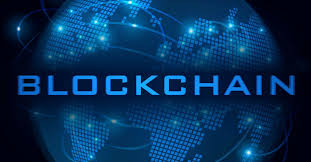Training Course on Food Traceability Systems and Blockchain in Food Supply Chains
Training Course on Food Traceability Systems and Blockchain in Food Supply Chains is designed to equip agribusiness professionals, food technologists, regulatory officials, and supply chain managers with the knowledge and practical skills required to implement food traceability systems powered by blockchain technology.

Course Overview
Training Course on Food Traceability Systems and Blockchain in Food Supply Chains
Introduction
The rapid evolution of global food supply chains has necessitated a robust, transparent, and secure traceability system. Blockchain technology is now revolutionizing how food traceability is implemented—ensuring authenticity, minimizing fraud, and enhancing consumer trust. As governments and private stakeholders push for safer food systems, the integration of blockchain and digital traceability platforms has become a critical component in maintaining food integrity from farm to fork.
Training Course on Food Traceability Systems and Blockchain in Food Supply Chains is designed to equip agribusiness professionals, food technologists, regulatory officials, and supply chain managers with the knowledge and practical skills required to implement food traceability systems powered by blockchain technology. By leveraging data transparency, real-time tracking, and immutable records, participants will learn how to transform food safety operations, comply with global standards, and strengthen the resilience of food supply chains.
Course Objectives
- Understand the fundamentals of food traceability systems.
- Explore blockchain technology applications in agriculture and food sectors.
- Analyze real-time food tracking and transparency mechanisms.
- Identify risks and mitigate fraud in food supply chains.
- Evaluate global food safety compliance standards (e.g., GS1, ISO, Codex).
- Implement end-to-end product lifecycle tracking using blockchain.
- Develop smart contracts for automated food quality assurance.
- Examine IoT and data integration in traceability systems.
- Interpret digital labeling and QR code authentication.
- Build sustainable and ethical sourcing frameworks.
- Leverage decentralized ledgers for cold chain monitoring.
- Apply blockchain to reduce food waste and recall impact.
- Design traceability policies aligned with ESG and SDGs.
Target Audience
- Food safety and quality assurance officers
- Agribusiness and food supply chain managers
- Government and regulatory agency representatives
- Blockchain developers in agri-tech
- Food exporters/importers and logistics companies
- Agricultural extension officers and consultants
- Researchers and academic institutions in food sciences
- Certification bodies and auditing firms
Course Duration: 5 days
Course Modules
Module 1: Introduction to Food Traceability Systems
- Definition and evolution of food traceability
- Importance of traceability in food safety and recalls
- Key components of a traceability system
- Legal and compliance frameworks
- Digital vs. manual traceability approaches
- Case Study: EU General Food Law Regulation compliance example
Module 2: Basics of Blockchain Technology in Food Systems
- What is blockchain? Concepts and architecture
- Public vs. private blockchain networks
- Benefits of blockchain in agri-food
- Smart contracts explained
- Blockchain security and immutability
- Case Study: IBM Food Trust and Walmart collaboration
Module 3: Real-Time Tracking and IoT Integration
- Role of IoT in traceability
- Sensor and data collection technologies
- GPS and geofencing in food logistics
- Real-time monitoring platforms
- Data syncing across supply chain stages
- Case Study: Cold chain tracking for perishable produce
Module 4: Compliance Standards and Global Certification
- Overview of international food standards
- GS1 Traceability Standards
- ISO 22005 and HACCP integration
- Codex Alimentarius and WTO guidelines
- Certification process and audit requirements
- Case Study: GS1 adoption by seafood exporters
Module 5: Blockchain Use Cases in Food Fraud Prevention
- Types of fraud in food supply chains
- Detecting counterfeits with blockchain
- Blockchain-enabled authentication solutions
- Integration with QR and RFID tags
- Blockchain for origin verification
- Case Study: Olive oil fraud prevention in Italy
Module 6: Sustainable Sourcing and ESG Compliance
- Ethical sourcing through blockchain visibility
- Measuring environmental impact across supply chains
- Traceability for fair trade and labor transparency
- Blockchain for circular economy tracking
- ESG metrics and audit reporting
- Case Study: Fair-trade cocoa supply chain in Ghana
Module 7: Smart Contracts and Automated Quality Control
- Role of smart contracts in food compliance
- Auto-triggering alerts and quality checks
- Traceability automation with AI and ML
- Case tagging and batch verification
- Integration with ERP systems
- Case Study: Smart contracts in dairy production chains
Module 8: Future of Blockchain in Food Supply Chains
- Trends in agri-food tech innovation
- Integration with Web3 and decentralized apps
- Challenges and barriers to adoption
- Government policies and blockchain regulation
- Building trust with consumers using transparency
- Case Study: National blockchain initiative in UAE agriculture
Training Methodology
- Interactive instructor-led presentations
- Group discussions and expert panels
- Live demonstrations of blockchain platforms
- Real-world simulations using traceability tools
- Hands-on exercises and quizzes
- Action planning and feedback sessions
Register as a group from 3 participants for a Discount
Send us an email: info@datastatresearch.org or call +254724527104
Certification
Upon successful completion of this training, participants will be issued with a globally- recognized certificate.
Tailor-Made Course
We also offer tailor-made courses based on your needs.
Key Notes
a. The participant must be conversant with English.
b. Upon completion of training the participant will be issued with an Authorized Training Certificate
c. Course duration is flexible and the contents can be modified to fit any number of days.
d. The course fee includes facilitation training materials, 2 coffee breaks, buffet lunch and A Certificate upon successful completion of Training.
e. One-year post-training support Consultation and Coaching provided after the course.
f. Payment should be done at least a week before commence of the training, to DATASTAT CONSULTANCY LTD account, as indicated in the invoice so as to enable us prepare better for you.